Find Help
More Items From Ergsy search
-
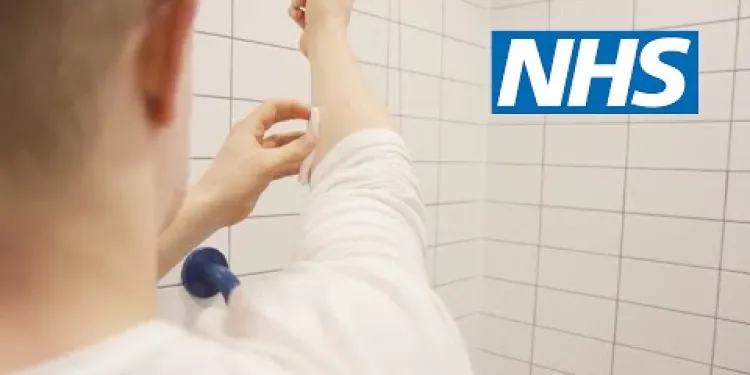
How to treat an insect bite or sting | NHS
Relevance: 100%
-

Think Pharmacy: Introduction for Bites and Stings
Relevance: 87%
-
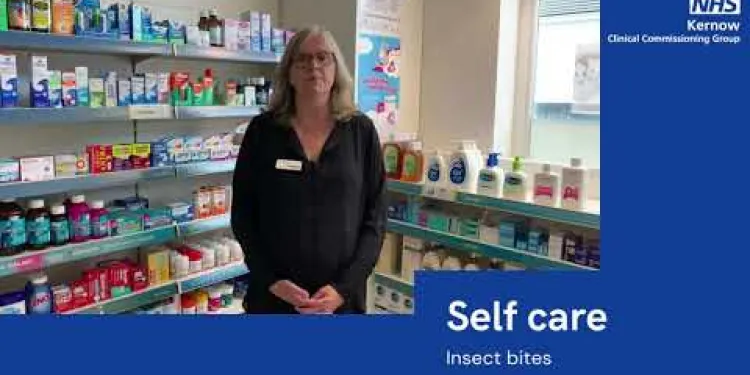
Self care - insect bites
Relevance: 74%
-

Can HIV be transmitted through insect bites?
Relevance: 60%
-

Is the bite from a false widow spider dangerous?
Relevance: 44%
-
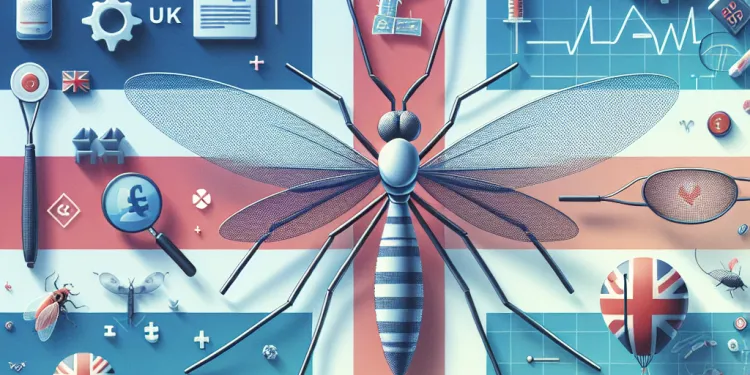
Are mosquito bites in the UK harmful?
Relevance: 40%
-

Which spiders in the UK can bite humans?
Relevance: 39%
-
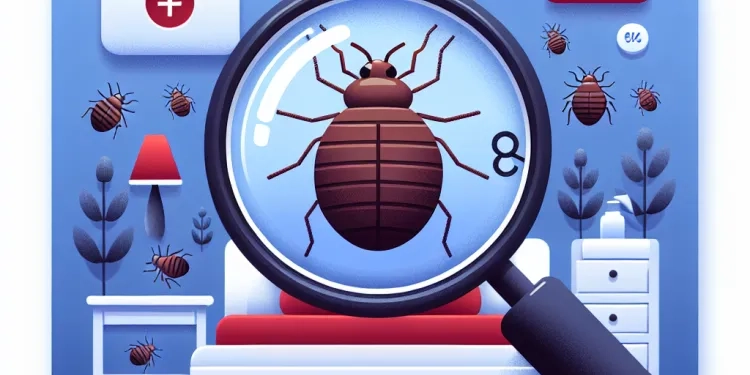
How can I tell if bites are from bed bugs?
Relevance: 38%
-
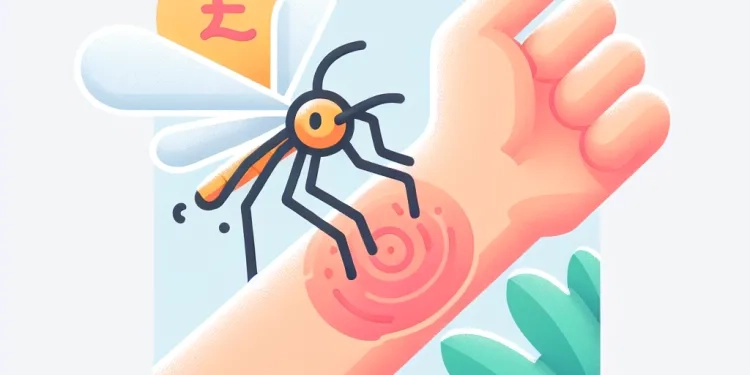
Why are mosquito bites itchy?
Relevance: 38%
-
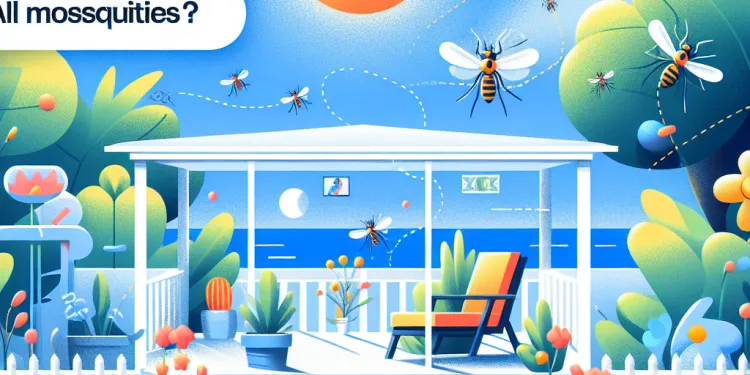
Do all mosquitoes bite humans?
Relevance: 37%
-
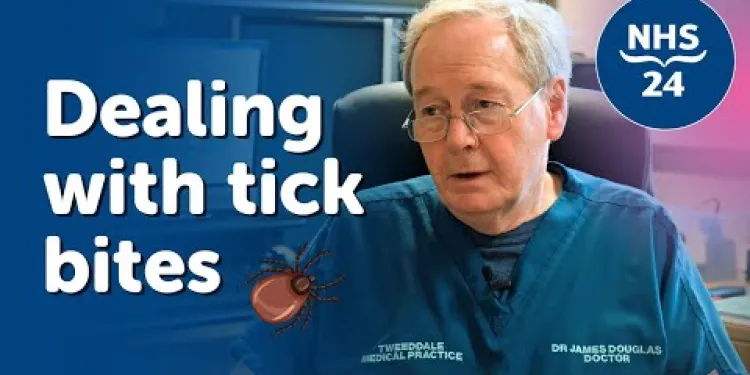
Tick Bites: Should you be worried?
Relevance: 37%
-
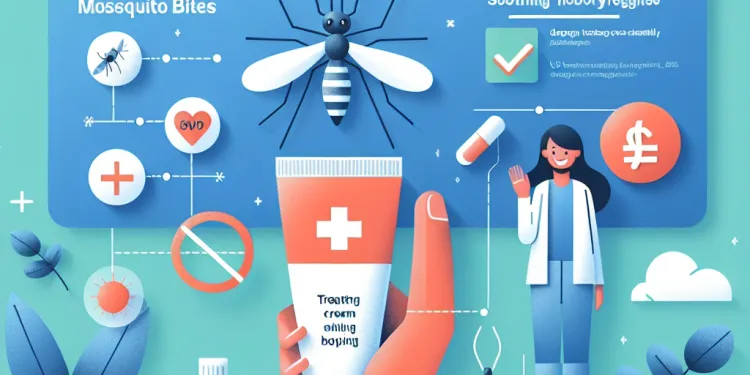
How can I treat mosquito bites?
Relevance: 35%
-
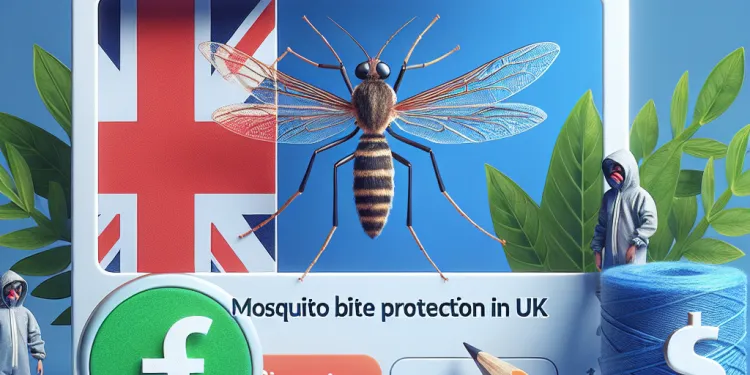
How can I protect myself from mosquito bites in the UK?
Relevance: 34%
-

How common are spider bites in the UK?
Relevance: 33%
-
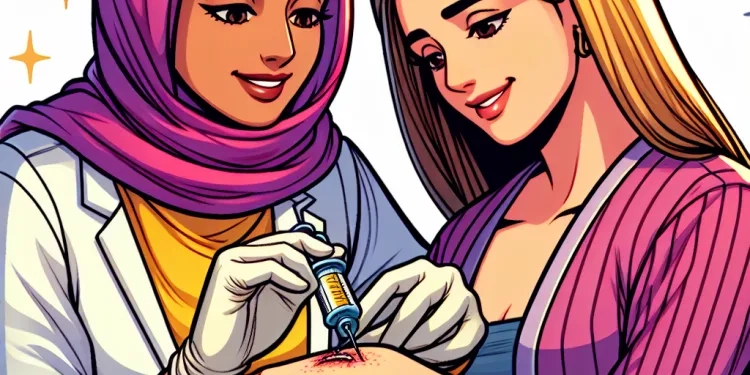
How to treat a dog bite
Relevance: 31%
-
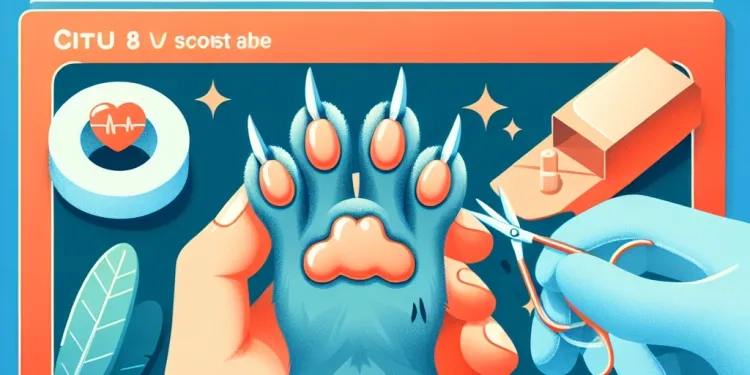
How to treat a cat bite
Relevance: 31%
-

How does DEET work to repel insects?
Relevance: 30%
-

What causes nettle rash?
Relevance: 29%
-

Are UK spiders venomous?
Relevance: 28%
-

Are there any poisonous spiders in the UK?
Relevance: 28%
-
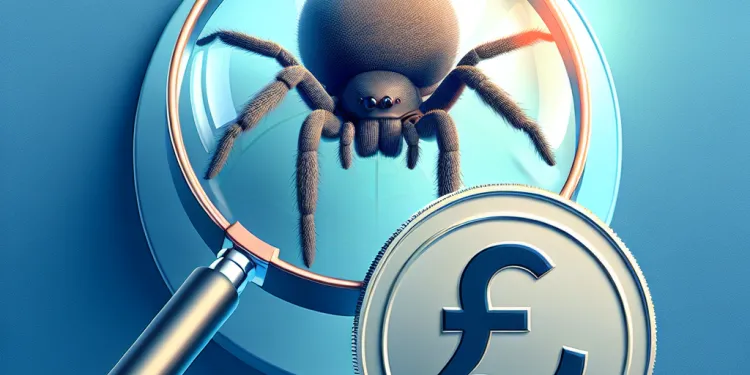
Do spiders in the UK carry diseases?
Relevance: 27%
-
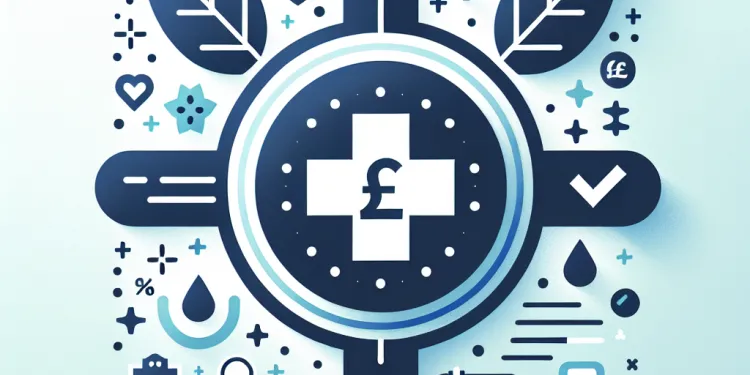
Are there treatments for West Nile Virus?
Relevance: 23%
-

How is Lyme disease transmitted?
Relevance: 23%
-

What should I do if I get bitten by a spider in the UK?
Relevance: 22%
-

Is Lyme disease contagious between humans?
Relevance: 21%
-

How do you prevent Lyme disease?
Relevance: 21%
-

Can UK spiders cause allergic reactions?
Relevance: 21%
-

Are there Mosquitos in the United Kingdom?
Relevance: 19%
-

What should I do if I find a spider in my home?
Relevance: 19%
-

How is the bubonic plague transmitted?
Relevance: 19%
-

Can the bubonic plague be prevented?
Relevance: 19%
-

Can children get nettle rash?
Relevance: 18%
-
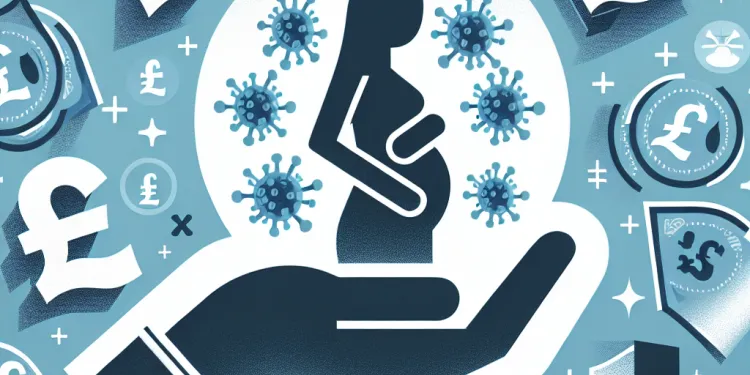
What precautions should pregnant women in the UK take regarding Zika virus?
Relevance: 18%
-
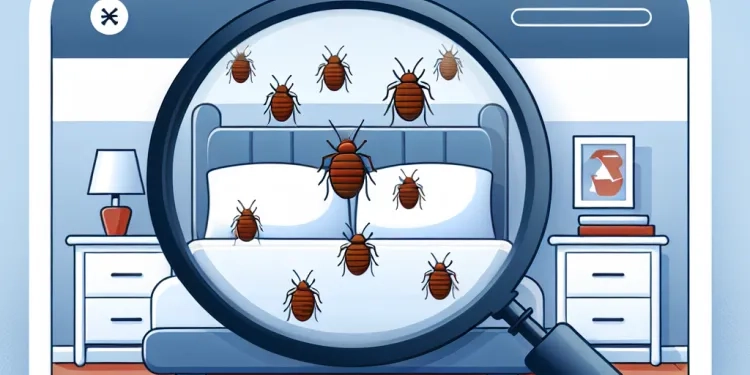
What are the signs of a bed bug infestation?
Relevance: 18%
-
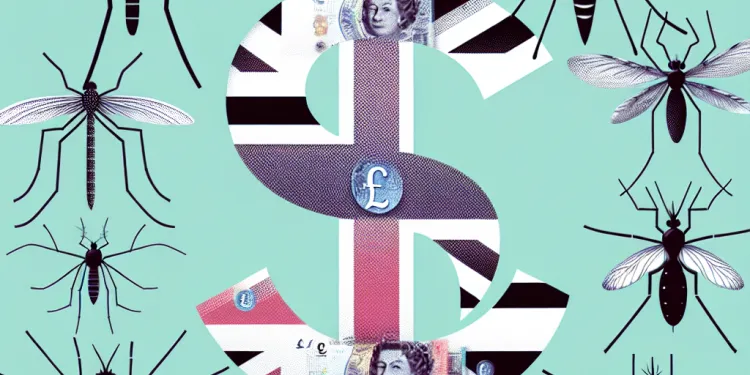
What types of mosquitoes are found in the UK?
Relevance: 18%
-
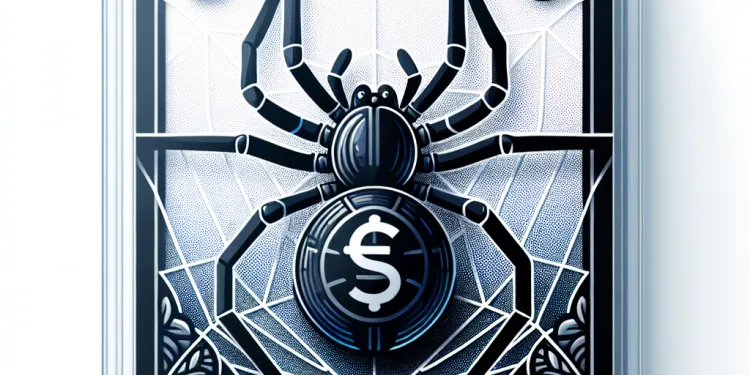
How can I identify a false widow spider?
Relevance: 18%
-

Are mosquito screens effective against midges?
Relevance: 18%
-
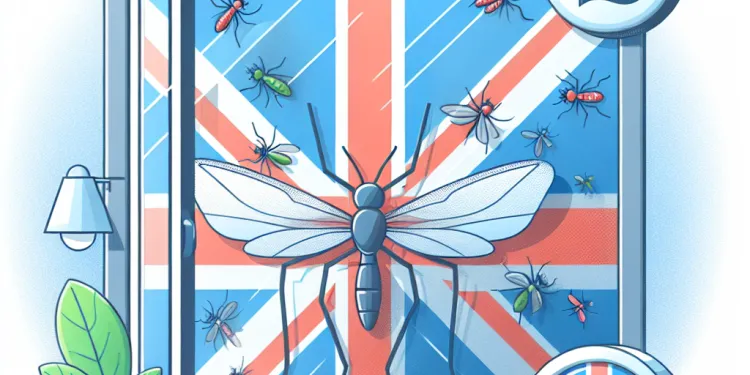
Are mosquito window screens effective in the UK?
Relevance: 18%
-

Are there non-venomous spiders in the UK?
Relevance: 18%
-
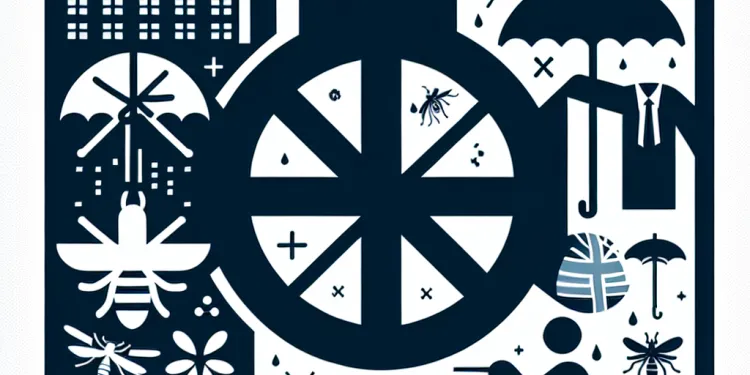
How can Chikungunya virus be prevented?
Relevance: 18%
How to Treat an Insect Bite or Sting | NHS
Immediate Steps
When bitten or stung by an insect, the first step is to move away from the area to avoid any further bites or stings. If the insect has left a stinger, use a flat-edged object like a credit card to scrape it off carefully. Do not use tweezers as this can release more venom into the skin.
Cleaning the Area
Once the stinger is removed, wash the affected area with soap and water. This will help remove any remaining venom or saliva and reduce the risk of infection. Pat the skin dry with a clean towel.
Reducing Swelling and Pain
Apply a cold compress or an ice pack wrapped in a cloth to the bitten or stung area for at least 10 minutes. This helps to reduce swelling and numb the area, providing pain relief. Over-the-counter pain relievers like paracetamol or ibuprofen can also be taken to alleviate pain and discomfort.
Managing Itching and Inflammation
To help manage itching and inflammation, consider applying an over-the-counter hydrocortisone cream or taking an oral antihistamine. Be sure to follow the instructions on the packaging or your GP’s advice for these medications.
Monitoring for Allergic Reactions
While most insect bites and stings are harmless, some individuals may develop allergic reactions. Symptoms can include swelling of the face or mouth, difficulty breathing, dizziness, or a rapid heartbeat. If any of these symptoms occur, seek immediate medical attention by calling 999 or visiting the nearest A&E department.
Preventing Future Bites and Stings
To prevent future insect bites and stings, wear long-sleeved clothing and trousers when outdoors, use insect repellent containing DEET, and avoid using strong-scented perfumes or lotions. Keep food and drinks covered when picnicking to avoid attracting insects.
How to Treat an Insect Bite or Sting
Insect bites and stings are common and usually only cause minor irritation. However, some can be more serious, particularly for those with allergies. Here's a guide on how you can effectively treat an insect bite or sting based on NHS advice.
Immediate Actions
When you're bitten or stung, the first step is to remove the sting, tick or hairs if still attached. Use a pair of tweezers to gently pull any remnants out of your skin.
After you've removed the sting, wash the affected area with soap and water to reduce the risk of infection. Applying a cold compress or ice pack can help soothe swelling and reduce pain.
Managing Pain and Swelling
For most insect bites and stings, over-the-counter painkillers like paracetamol or ibuprofen can be used to alleviate pain. It's advisable to avoid scratching the bite or sting as this can increase the risk of infection.
If swelling persists, applying a clean cloth dampened with cold water can provide relief. Sometimes, elevating the affected area can also help reduce swelling.
Using Medications
Antihistamines, available from pharmacies, can help ease itching and swelling. You can choose oral antihistamines or topical creams that contain soothing ingredients like calamine lotion.
For more intense reactions or multiple bites, seek advice from a healthcare professional. They may recommend stronger corticosteroid creams or a short course of oral steroids.
Recognising Severe Reactions
While most insect bites and stings are not serious, it is crucial to recognise when you need medical assistance. Severe allergic reactions require immediate attention.
Signs of a severe reaction include difficulty breathing, swelling of the face or mouth, a rapid heart rate, or dizziness. If you suspect a severe allergic reaction, call 999 immediately for emergency help.
Preventing Future Bites or Stings
To minimise future encounters, try wearing long sleeves and trousers in areas with high insect activity. Use insect repellent on exposed skin, and avoid wearing bright colours or strongly scented products that could attract insects.
Taking these preventive measures and knowing how to treat bites and stings can help ensure you enjoy outdoor activities safely and comfortably in the UK.
How to Treat an Insect Bite or Sting | NHS
What to Do Straight Away
If an insect bites or stings you, first move away. This stops more bites or stings. If there's a stinger, gently scrape it off with something flat, like a credit card. Don't use tweezers as they can squeeze more venom into your skin.
Clean the Area
After removing the stinger, wash the area with soap and water. This cleans away venom or saliva and helps stop infection. Then, gently dry your skin with a clean towel.
Make Swelling and Pain Less
Put a cold cloth or ice pack wrapped in a cloth on the bite or sting for 10 minutes. This can help with swelling and makes it hurt less. You can also take medicine like paracetamol or ibuprofen for pain.
Deal with Itching
If it's itchy, use a cream or medicine that stops itching. Always read the instructions, or ask your doctor how to use them.
Look Out for Allergic Reactions
Most insect bites and stings are okay, but sometimes they cause allergic reactions. Watch for a big swelling on the face or mouth, trouble breathing, feeling dizzy, or a fast heartbeat. If these happen, call 999 or go to A&E fast.
Stop Bites and Stings Happening
Wear long sleeves and trousers outside. Use insect spray with DEET. Avoid strong perfumes or lotions. When eating outside, keep food and drinks covered so insects don't come.
How to Care for an Insect Bite or Sting
Insect bites and stings happen often. They can make your skin itchy or sore, but they usually aren't serious. Some people with allergies might have strong reactions. Here is a simple guide to help you take care of an insect bite or sting using tips from the NHS.
What to Do Right Away
If an insect bites or stings you, first, check if the sting or tick is still in your skin. Use tweezers to gently pull it out.
After removing it, wash the area with soap and water. This helps stop germs. You can use a cold cloth or ice pack on the area to make it feel better and less swollen.
Handling Pain and Swelling
If the bite or sting hurts, you can take medicine like paracetamol or ibuprofen. These are available at the pharmacy. Don't scratch the bite or sting because it can get infected.
If the area is still swollen, put a cool, wet cloth on it. This can help make it feel better. Also, try to keep the swollen part elevated (raised up) to help with swelling.
Using Medicines
You can buy antihistamines at the pharmacy to help with itching and swelling. You can get these as tablets or as creams, like calamine lotion.
If you're bitten or stung many times or have a strong reaction, talk to a doctor. They might give you stronger creams or other pills to help.
Knowing When It's Serious
Most bites and stings aren't dangerous, but some can be scary. Know when to get help quickly.
Signs of serious problems include trouble breathing, swelling in the face or mouth, fast heartbeat, or feeling dizzy. If you see any of these, call 999 for emergency help right away.
Stopping Bites and Stings
To avoid bites and stings, wear long shirts and pants in areas with lots of insects. Use bug spray on skin that isn't covered. Avoid bright clothes and strong perfumes because they can attract insects.
By keeping these tips in mind, you can enjoy being outside safely and comfortably.
Frequently Asked Questions
What are the common symptoms of an insect bite or sting?
Common symptoms include redness, swelling, and itching at the bite or sting site. Some people might experience pain or a burning sensation.
How should I treat a bee or wasp sting?
Remove the sting if it's visible by gently scraping it out with a credit card or your fingernail. Clean the area with soap and water, apply a cold compress to reduce swelling, and consider taking pain relief, such as ibuprofen or paracetamol.
What should I do if I have an allergic reaction to an insect bite or sting?
Seek medical help immediately if you experience symptoms of an allergic reaction, such as difficulty breathing, swelling of the face or mouth, or a fast heart rate.
Can I use cream for insect bites and stings?
Yes, you can use an antihistamine cream or a mild steroid cream like hydrocortisone to reduce itching and swelling. Always follow the directions on the label or consult with a pharmacist.
How can I relieve itching caused by an insect bite?
Applying a cold compress, taking an oral antihistamine, or using anti-itch creams can help relieve itching.
Is it safe to take antihistamines for insect bites?
Yes, oral antihistamines can help relieve itching and swelling caused by insect bites. Consult with a pharmacist if you have any concerns.
When should I seek medical attention for an insect bite?
You should seek medical attention if the bite or sting becomes infected, if symptoms suddenly worsen, or if you experience symptoms of an allergic reaction.
How can I prevent insect bites and stings?
Wear long sleeves and trousers, use insect repellent containing DEET, and avoid known insect habitats when possible.
Is swelling normal after an insect bite?
Yes, swelling is a common reaction to insect bites and usually diminishes within a few days. If swelling persists or causes concern, seek medical advice.
What should I do if an insect bite becomes infected?
If an insect bite becomes red, warm, or has pus, it may be infected. Seek medical advice as you may need antibiotics.
Can insect bites cause fever?
While uncommon, some people may develop a mild fever. If a fever develops, monitor other symptoms and seek medical attention if needed.
What are the signs of a severe allergic reaction to a bite or sting?
Signs include difficulty breathing, a swollen face or throat, rash, or dizziness. Seek emergency medical help immediately.
Are insect bites and stings more dangerous for children?
Children can be more sensitive to insect bites and stings. Always monitor symptoms closely and seek medical advice if an unusual reaction occurs.
Can I use ice to treat insect bites?
Yes, applying ice wrapped in a cloth can help reduce swelling and numb the area, providing relief from irritation.
What over-the-counter medications can I use for insect bite relief?
Paracetamol, ibuprofen, and antihistamines are commonly used to relieve discomfort from insect bites and stings. Consult with a pharmacist for suitable options.
What happens when an insect bites or stings you?
When an insect bites or stings you, you might notice some things happening to your skin. Here are things you can look for:
- Red skin: your skin might turn red where you got bitten or stung.
- Itchy skin: it might be itchy where the insect bit or stung you.
- Swelling: the area might get a bit puffy or swollen.
- Pain: it might hurt a little where you got bitten or stung.
If you feel worried or if these things get worse, tell an adult and they can help you. You can also use a soothing cream or a cold pack to feel better.
When you get a bite or sting, you might see the skin turn red. It could also get puffy and itchy. Some people might feel it hurts or burns too.
What should I do if a bee or wasp stings me?
If a bee or wasp stings you, try to stay calm. Here’s what you can do to help:
- Move away: Bees and wasps can sting more than once, so move to a safe place.
- Check the sting: Look at the sting. Bees leave a small stinger in your skin. Gently scrape it out with something like a credit card. Don’t use your fingers or tweezers because it can squeeze more venom into your skin.
- Wash the area: Use soap and water to clean the sting spot.
- Ice it: Put a cold pack or ice wrapped in cloth on the sting to stop swelling.
- No scratching: Try not to scratch the area, as it can make it worse.
- Feeling bad? If you have trouble breathing, feel faint, or your face swells a lot, get help quickly. It might be serious.
Remember, you can ask someone to help you with these steps if it's hard to do them yourself.
If you can see the sting, try to take it out by scraping it gently with a credit card or your fingernail. Clean the spot with soap and water. Use a cold cloth to make the swelling go down. If it hurts, you can take medicine like ibuprofen or paracetamol to feel better.
What can I do if an insect bite or sting makes me sick?
1. Stay calm. Tell someone you trust, like a parent or caregiver.
2. Look for signs that you are not feeling well. These could be:
- Red or itchy skin
- Breathing troubles
- Swelling in your face or body
3. Get help fast. Call a doctor or go to the hospital.
4. If you have medicine for allergies, like an EpiPen, use it as the doctor told you.
5. Breathing exercises or relaxation can help you stay calm until help arrives.
It is important to ask a grown-up for help if you need it.
If you feel sick with things like hard breathing, a puffy face or mouth, or a fast heartbeat, get help from a doctor right away.
Can I put cream on bug bites and stings?
If a bug bites or stings you, it can be itchy and painful. You might want to use a cream to feel better.
The cream can help stop the itch and make the pain go away. Ask an adult or a doctor which cream is best to use.
It's a good idea to wash the bite or sting with water first. This helps keep it clean.
If you are not sure what to do, ask a grown-up for help.
Yes, you can use a special cream to help with itching and swelling. There are two types of cream you can try. One is called antihistamine cream and the other is mild steroid cream, like hydrocortisone.
Make sure you read the instructions on the cream. If you're not sure, ask someone at the pharmacy to help you.
How can I stop itching from a bug bite?
If a bug bites you, it can make your skin itchy.
Here's how to feel better:
- Wash the bite with soap and water.
- Put a cool, wet cloth on it.
- Don't scratch! Scratching can make it worse.
- Use cream or spray from the pharmacy to help with itching.
If it keeps hurting or you feel sick, ask an adult or see a doctor.
You can use a magnifying glass to see the bump better or ask someone to help you read the instructions on any cream or spray.
To help with itching, you can try a few things:
1. Put something cold on the itchy spot.
2. Take medicine that helps with allergies.
3. Use cream that stops itching.
Can I use medicine for insect bites?
It's okay to use medicine called antihistamines for insect bites. These help stop itching and swelling.
If you are not sure, ask a grown-up or a doctor.
Reading tools can help you understand better. You can also use picture cards, or ask someone to read with you.
Yes, taking allergy medicine by mouth can help with itching and swelling from insect bites. Talk to a pharmacist if you have questions.
When should I see a doctor for an insect bite?
If an insect bites you, you might want to see a doctor if:
- The bite gets bigger, red, or very sore.
- You feel dizzy or sick.
- You have trouble breathing.
- The bite does not get better in a few days.
If you feel worried, you can ask an adult to help you go to the doctor.
Using a magnifying glass or reading app might make reading easier.
If a bite or sting gets red and sore, see a doctor. Go to a doctor if it suddenly feels much worse, or if you feel signs of an allergy.
How can I stop bug bites and stings?
Here are some tips to keep bugs away:
- Wear long sleeves and pants.
- Use bug spray on your skin and clothes.
- Stay away from places with lots of bugs, like ponds or gardens.
- Keep windows and doors closed or use screens.
Helpful tools:
- Bug spray
- Insect nets
- Long clothing
Wear long shirts and pants. Use bug spray with DEET. Stay away from places with lots of bugs if you can.
Is it normal for a bite to get bigger?
Yes, it is normal for the skin to get a bit bigger and red after a bug bite. This is how your body reacts. If it starts to hurt a lot or gets bigger and bigger, ask an adult to help. You can use a cold cloth or ask about special creams to feel better.
Yes, swelling is normal after an insect bite. It usually goes away in a few days. If the swelling stays or you are worried, talk to a doctor.
What to Do if a Bug Bite Gets Infected
1. Keep the area clean: Wash the bite gently with soap and water.
2. Don't scratch: Scratching can make it worse and cause germs to enter.
3. Use a cool cloth: Put a wet, cool cloth on the bite to help with swelling.
4. Apply cream: Ask an adult to help you put some cream on the bite. This can help with itching and infection.
5. Tell an adult: Let an adult know if it looks red, warm, swollen, or has pus.
6. Go to the doctor: If it doesn't get better, an adult might take you to see a doctor. The doctor can give medicine to help.
Try these steps to take care of a bug bite. Don't forget to ask an adult if you need help!
If a bug bite turns red, feels hot, or has yellow stuff coming out, it might be infected. Talk to a doctor because you might need medicine.
Can bug bites make you sick with a fever?
Sometimes, when a bug bites you, it can make you sick and give you a fever.
Here are some tips to help you:
- If you feel hot or sick after a bug bite, tell an adult.
- Try not to scratch the bite, as it might make it worse.
- Ask an adult for help to clean the bite.
- Use a cold cloth on the bite to feel better.
Getting a fever doesn't happen often. But if you do get a little fever, keep an eye on how you feel. If you feel worse, tell a grown-up or doctor.
How can you tell if a bite or sting is very bad?
If someone gets stung or bitten, you might need to know if it is a serious problem. Here are some signs that the person might be having a very bad reaction:
- Breathing is hard or noisy.
- Face, mouth, or throat starts to swell up.
- Feeling very dizzy or faint.
- Skin gets very itchy or you see a rash everywhere.
If you see these signs, it is important to get help right away. Call for emergency help or go to a doctor.
Using pictures or videos can help understand these signs better. Talking with someone who knows about stings and bites can also be helpful.
Look for these signs: trouble breathing, a puffy face or neck, a skin rash, or feeling dizzy. Get medical help right away. Call for an ambulance or go to the hospital if you see these signs.
Are Bug Bites and Stings More Dangerous for Kids?
Bugs can bite or sting. It can hurt or itch. Is it more dangerous for kids when bugs bite or sting? Here is some easy help:
- If a bug bites or stings a kid, watch them closely.
- Use a cold cloth to help with pain or itching.
- If a kid feels very sick, tell an adult and see a doctor.
- Tell kids not to touch bugs to stay safe.
Ask an adult if you need help with bug bites. They can call a doctor if needed.
Children can feel insect bites and stings more than adults. Always watch for changes after a bite or sting, and talk to a doctor if it looks different than usual.
Can I use ice to help with bug bites?
Yes, you can use ice to help with bug bites. Ice can make the bite feel better.
Here is how you can use ice:
- Put some ice in a cloth or plastic bag.
- Hold the ice on the bite for a little while, about 10 minutes.
- Take breaks so your skin does not get too cold.
Tools that can help:
- Ice pack
- Small towel or cloth
Yes, putting an ice pack wrapped in a cloth on the sore spot can help. It makes the swelling go down and numbs the area, which helps it feel better.
What medicine can I buy at the store to help with itchy or sore bug bites?
If a bug bites you, it can make your skin itchy or hurt. You can find medicine at the store to help you feel better.
Here are some tips to help:
- Ask a pharmacist for help: The pharmacist can show you which medicine to get.
- Look for cream or gel: These help with itching and swelling.
- Read the label: Make sure it's for bug bites.
- Try a cool cloth: Put a wet cloth on the bite to help with itching.
Always be careful and ask an adult to help if you need it.
Paracetamol, ibuprofen, and medicines for allergies can help if an insect bites or stings you. Ask a pharmacist for help choosing the right one.
Useful Links
This website offers general information and is not a substitute for professional advice.
Always seek guidance from qualified professionals.
If you have any medical concerns or need urgent help, contact a healthcare professional or emergency services immediately.
Some of this content was generated with AI assistance. We’ve done our best to keep it accurate, helpful, and human-friendly.
- Ergsy carfully checks the information in the videos we provide here.
- Videos shown by Youtube after a video has completed, have NOT been reviewed by ERGSY.
- To view, click the arrow in centre of video.
- Most of the videos you find here will have subtitles and/or closed captions available.
- You may need to turn these on, and choose your preferred language.
- Go to the video you'd like to watch.
- If closed captions (CC) are available, settings will be visible on the bottom right of the video player.
- To turn on Captions, click settings .
- To turn off Captions, click settings again.
More Items From Ergsy search
-

How to treat an insect bite or sting | NHS
Relevance: 100%
-

Think Pharmacy: Introduction for Bites and Stings
Relevance: 87%
-

Self care - insect bites
Relevance: 74%
-

Can HIV be transmitted through insect bites?
Relevance: 60%
-

Is the bite from a false widow spider dangerous?
Relevance: 44%
-

Are mosquito bites in the UK harmful?
Relevance: 40%
-

Which spiders in the UK can bite humans?
Relevance: 39%
-

How can I tell if bites are from bed bugs?
Relevance: 38%
-

Why are mosquito bites itchy?
Relevance: 38%
-

Do all mosquitoes bite humans?
Relevance: 37%
-

Tick Bites: Should you be worried?
Relevance: 37%
-

How can I treat mosquito bites?
Relevance: 35%
-

How can I protect myself from mosquito bites in the UK?
Relevance: 34%
-

How common are spider bites in the UK?
Relevance: 33%
-

How to treat a dog bite
Relevance: 31%
-

How to treat a cat bite
Relevance: 31%
-

How does DEET work to repel insects?
Relevance: 30%
-

What causes nettle rash?
Relevance: 29%
-

Are UK spiders venomous?
Relevance: 28%
-

Are there any poisonous spiders in the UK?
Relevance: 28%
-

Do spiders in the UK carry diseases?
Relevance: 27%
-

Are there treatments for West Nile Virus?
Relevance: 23%
-

How is Lyme disease transmitted?
Relevance: 23%
-

What should I do if I get bitten by a spider in the UK?
Relevance: 22%
-

Is Lyme disease contagious between humans?
Relevance: 21%
-

How do you prevent Lyme disease?
Relevance: 21%
-

Can UK spiders cause allergic reactions?
Relevance: 21%
-

Are there Mosquitos in the United Kingdom?
Relevance: 19%
-

What should I do if I find a spider in my home?
Relevance: 19%
-

How is the bubonic plague transmitted?
Relevance: 19%
-

Can the bubonic plague be prevented?
Relevance: 19%
-

Can children get nettle rash?
Relevance: 18%
-

What precautions should pregnant women in the UK take regarding Zika virus?
Relevance: 18%
-

What are the signs of a bed bug infestation?
Relevance: 18%
-

What types of mosquitoes are found in the UK?
Relevance: 18%
-

How can I identify a false widow spider?
Relevance: 18%
-

Are mosquito screens effective against midges?
Relevance: 18%
-

Are mosquito window screens effective in the UK?
Relevance: 18%
-

Are there non-venomous spiders in the UK?
Relevance: 18%
-

How can Chikungunya virus be prevented?
Relevance: 18%


